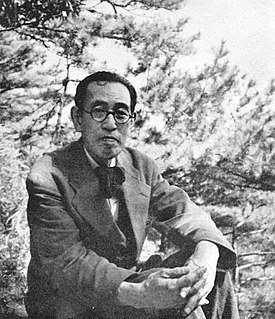A Quote by Frans de Waal
As in a Russian doll, however, the outer layers always contain an inner core. Instead of evolution having replaced simpler forms of empathy with more advanced ones, the latter are merely elaborations on the former and remain dependent on them. This also means that empathy comes naturally to us. It is not something we only learn later in life, or that is culturally constructed.
Related Quotes
There is absolutely no single aspect of one's personality that is more important to develop than empathy, which is not a skill at which men typically are asked to excel. I believe empathy is not only the core of art, literature and music, but should also be at the core of society, from ethics to economics.
Empathy occurs when we suspend our single-minded focus of attention and instead adopt a double-minded foucus of attention. When our attention lapses into single focus, empathy has been turned off. When we shift our attention to dual focus empathy has been turned on. Empathy is our ability to identify what someone else is thinking or feeling and to respond to there thought or feelings with an approriate emotion. Empathy makes the other person feel valued, enabling them to feel that their thoughts and feelings have been heard.
Funny bones, to me, are more important than funny lines. If a comedian is just not likable and doing the lines, you could read them yourself. Whereas if someone [you like] shambles out, and they tell you what a bad day they've had, they don't have to say anything. I love them. I want to hug them because they've been through something. And it comes back to empathy, always empathy.
Empathy provides more than just information about relationships. It is an expression of being in relationship. It is not just a means to better healing relationship, but because it recenters relationship as a central organizing feature of psychic life, empathy itself is healing. The experience of being known and accepted deeply by another, being aware of another being aware of you, what Jordan calls "mutual empathy".
As instruments for knowing the objects, the sense organs are outside, and so they are called outer senses; and the mind is called the inner sense because it is inside. But the distinction between inner and outer is only with reference to the body; in truth, there is neither inner nor outer. The mind's nature is to remain pure like ether.
Empathy is a human trait. But lots of humans exercise some traits more energetically than others. By "the usefulness of empathy" I mean the way in which a progressive might claim that empathy is a crucial aspect of any benign political system, and the way a conservative might argue that not only is it not necessary, but it might not even be all that helpful, in that regard.




































